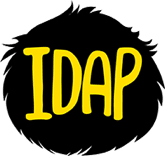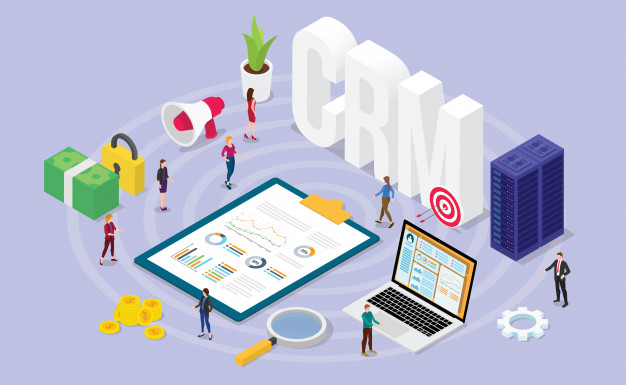Intro
CRM stands for Customer Relationship Management, which in the business context usually means a specific kind of software for controlling all company’s operations, from external interactions with clients to in-house daily routine. Depending on the goals and specifications of a particular firm, the CRM functionality may vary greatly. In today’s post, we’re exploring the most popular types of CRM software that have taken over the digital market.
#1 Operational
The operational type is the most all-encompassing and basic one out of all CRM categories. It is aimed at covering all key processes inside a company, at least on a surface level. The first priority behind an operational CRM system is to define customers’ experience with the company and help the employees to properly organize the delivery of the company’s products or services.
The core functionality of operational CRM programs include:
- Data storage;
- Workflow tracking;
- Customer support;
- Human resources management;
- Marketing and sales functionality;
- Inventory administration;
- Accounting;
- Third-party solutions integration.
Operational CRM programs are used by both employees and managers, as they provide a clear image of what’s going on in the office, limit manual work, and in general, simplify the daily work routine on every level. However, to maximize the control over a particular division in business, the implementation of an operational CRM system usually is not enough. Luckily, there are different types of CRM to achieve that.
#2 Collaborative
Large corporations with many departments oftentimes struggle with internal communication and, especially, with data gathering and proper storage. Such messy operations may lead to unfortunate customer experiences with the company and, as a result, cause reputational damage. To prevent that, the digital market introduced collaborative (sometimes also called strategic) types of CRM technology. Such CRMs help companies to organize the collaborative efforts of all team players, thereby enhancing customer data collection and smoothing out marketing and sales operations. The key features of this type include:
- Data collection, structuring, and sharing across departments;
- Bringing the history of all external communications to a common standard;
- Polishing of customer experience through personalization.
Collaborative solutions mainly focus on the following types of data in CRM: communication channel records to know exactly how to reach every customer of yours in the most comfortable way, and interaction tracking to be aware of every word, call, or text sent to a customer on your company’s behalf.
#3 Analytical
How much customer information can a worker remember in the long term? Including order history, preferences, personal information like age, location, birthday, last interaction with the company, etc. Definitely not enough to serve every single one seamlessly. Analytical examples of CRM platforms act as a secret weapon to analyze every piece of information related to your business and use it to not only reflect on the past but predict the future. Namely, the features of analytical CRM solutions are centered around the following:
- Systematic analysis of data;
- Statistics and reporting;
- Client behavioral studies;
- Sales and trends forecasting;
- Data visualization (graphs and charts);
- Action recommendations for employees.
Analytical software for customer care is usually used in combination with operational or some other types of CRM systems, since it is barely possible to withdraw operational data without technical linking to the company’s processes directly.
#4 Marketing
The first and foremost goal of any business is to generate income, and marketing is the technique to achieve that goal. Regardless of your company’s scope or industry it belongs to, we bet you want your products or services to grow and gain appreciation in public. The marketing structure of CRM system unites all the tools for promoting, selling, and advertising in one dashboard for instant access to the teams thereby promoting efficiency and accuracy. The functionality of marketing CRM systems includes:
- Sales pipeline;
- History of product purchases or services delivered;
- Advertising campaigns and audience reaction to them;
- Marketing budget proportioning;
- Email, VoIP, and other in-app communication tools;
- Advertising tools integration like Google Ads, Facebook Lead Ads, etc.
#5 Industry-specific
The way a company functions in many ways defined by the industry it works in. Admit it, chances that the same business management software would perfectly meet the needs of a beauty salon and, let’s say, an oil & gas company, are tiny. That is why industry-specific types of CRM gained massive market share in recent years — they simply do their job and adjust to industry limitations, not the other way around. Ready-made solutions for healthcare, insurance, automotive, construction, and plenty of other sectors offer unique functionality and are usually built by people with relevant hands-on experience.
Since non-standard CRM features will differ from one industry to another, it is impossible to list them all. However, what we can list is what exactly distinguishes industry-specific CRMs from other types:
- Unusual software units inside the system;
- Predefined scenarios that reflect a customer-serving routine, peculiar to a specific sphere;
- Expanding from a two-side system — customer- and employee-facing — to other parties, for example, field workers.
#6 Customer support
Of course, all CRM solutions allow teams to organize customer care to a greater or lesser degree. However, when it comes to corporations with a massive client base, the basic functionality of calling and messaging just isn’t enough. CRM systems targeted at client support expand their features to provide a full image of how customers experience their interactions with a company. Implementation of such a CRM system allows not only to improve technical support as it is, but collect valuable insights on every client for future personalization.
Namely, functions of customer care CRM systems encompass:
- Ticketing and task management;
- Help desk and other call center functions;
- VoIP and telecommunications;
- Integrated email agent;
- Automated replies for frequently asked questions;
- Customer care analytics;
- Performance tracking for employees.
#7 Custom
Even though technically custom solutions do not belong to the common CRM classification, we just couldn’t help including it on this list. The thing is, to find a CRM that would meet all the requirements of your team while staying affordable and easy-to-use, especially for non-technical people, is really hard. And looking for one isn’t free of charge — to properly test one software solution, you have to firstly implement it in your routine, train your employees, and entrust it with your operations. We want you to realize one simple thing, if it seems like ready-made CRMs don’t work for you, then stop torturing your company and risking with what you’ve already built. Custom software that was created for nobody but you and based on your particular problems to solve will pay your investments back in all the possible ways. Having delivered dozens of custom CRM and ERP projects, we know for sure that it is possible to create powerful software without spending a fortune. Extra benefits of custom solutions include:
- The top-level data security — you don’t rely on third-party providers and keep your business information to yourself;
- Product ownership — you fully own your CRM system and can even turn into a source of profit in the future;
- Scalability up to your needs — expand or limit the functions of your software as you need at this very moment, without extra charges or pauses in the working process;
- The most personalized experience your team has ever had — and only you who shape the functionality and look of your future CRM, so it can include literally anything, from slang terms you use in the office to unique in-house practices you support.
Summary
While all the companies selling CRM systems have only the best intentions about your business, some solutions still will be more suitable for your company than others. Now that you’ve found out the predominant CRM types on the digital market, it would be easier to start searching for perfect customer relations management software for your office. In case struggling with the search, our team provides technical consulting for companies of all sizes, so do not hesitate to initiate a discussion.



